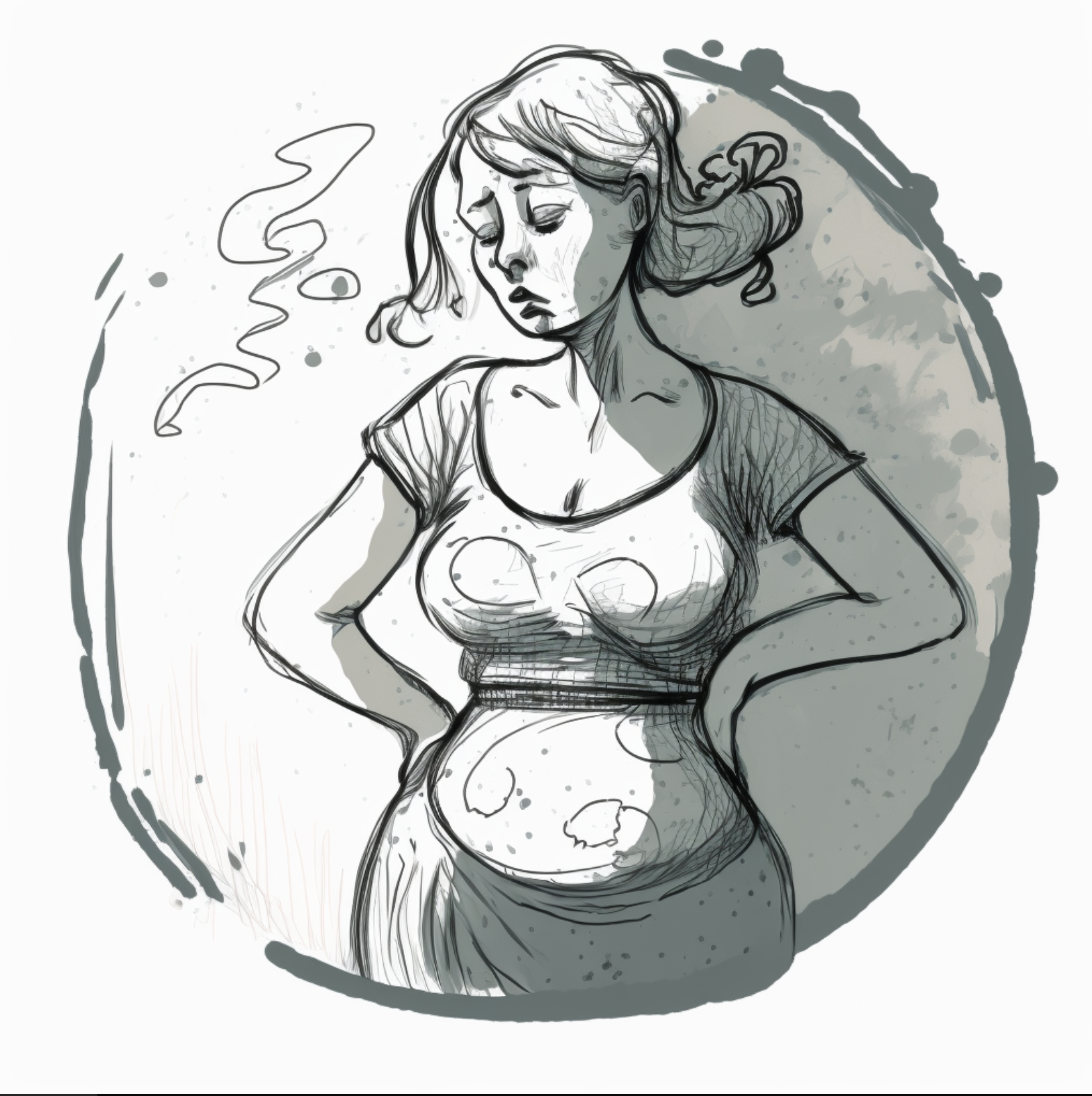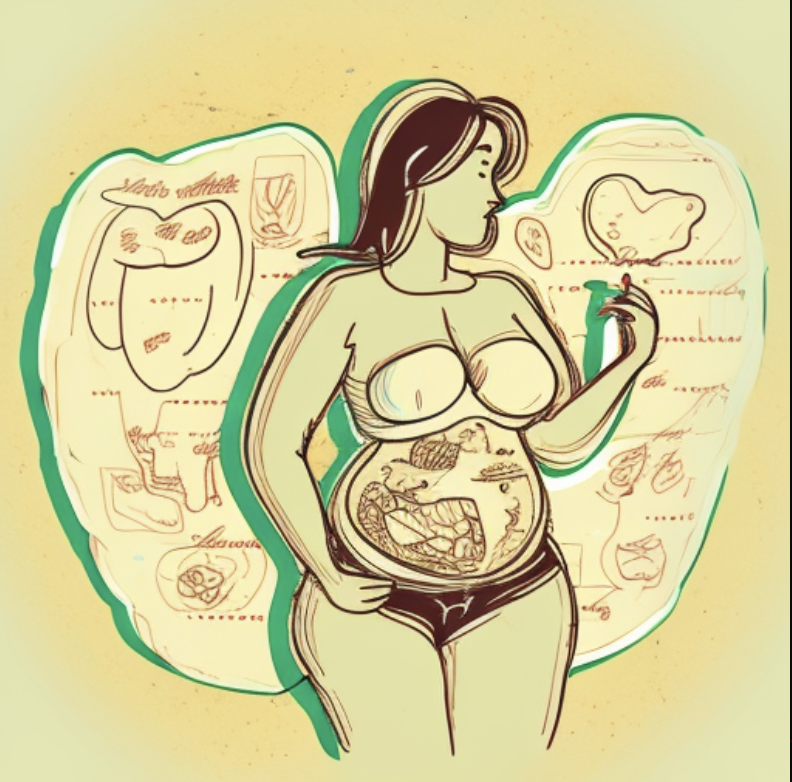Bloating on Period: Understanding and Managing Your Menstrual Symptoms
As a woman, experiencing bloating on period can be uncomfortable and frustrating. It’s a common symptom of the menstrual cycle, but what causes it? In this blog post, we’ll explore the definition and causes of bloating on period, as well as the various symptoms you may experience. We’ll also provide lifestyle changes you can make to reduce bloating, over-the-counter medications that offer relief and when it may be necessary to see a doctor. By understanding your body’s natural changes during menstruation and taking steps to manage your symptoms, you’ll be able to better navigate your menstrual cycle with ease.
I. Introduction
For many women, the menstrual cycle is a monthly challenge that they have to deal with, and bloating on period is one of the most common issues women experience. Bloating during menstruation can be a frustrating and uncomfortable experience that impacts daily activities. Understanding why it happens can help to alleviate some of the menstrual discomfort.
II. What is Bloating on Period?
Bloating on period refers to water retention in the body during menstruation that leads to swelling in the belly area. The body retains more water around this time because of hormonal fluctuations, which leads to bloating and swelling in the pelvic region, abdomen and sometimes thighs.
It differs from regular bloating since it’s experienced solely due to hormonal changes during menstruation rather than an unhealthy diet or other medical conditions.
III. Causes of Bloating on Period
Bloating on period occurs as a result of several factors such as hormonal changes, water retention in the body, and gas formation in the digestive system.
Hormonal changes: During menstruation, estrogen levels decrease while progesterone levels increase causing an imbalance that results in fluid retention and causes inflammation.
Water Retention: Hormonal imbalances caused by menstruation leads to increased fluid buildup leading to accumulation in tissues around your stomach area making you feel heavy or swollen.
Gas Formation: During your period, digestion slows down causing gas buildup leading to bloating sensation in addition to abdominal distension & discomfort.
IV. Symptoms of Bloating on Period
Bloating symptoms can vary from individual-to-individual but often include:
– Abdominal discomfort/pain
– Feeling full or swollen
– Nausea or vomiting
V. Lifestyle Changes To Reduce Bloating
Lifestyle modifications help manage bloating symptoms during a menstrual cycle for some women:
Exercise: Incorporate exercises like yoga or walking into your weekly routine as it helps reduce stress while aiding digestion by stimulating bowel movements & reducing abdominal stiffness.
Diet: Avoid processed foods high in sodium that can cause water retention in the body. Instead, include fiber-rich foods like fruits and vegetables to help with bowel movements and reducing gas production.
Teas: Infusions like ginger tea or peppermint tea are natural remedies for digestion problems caused by bloating. They help reduce inflammation and alleviate menstrual cramps.
*Also see the benefits of fasting with water.
VI. Over-the-counter Medications for Relief
Over-the-counter medications can provide relief from bloating on period, especially when lifestyle modifications do not work alone.
OTC painkillers such as ibuprofen and acetaminophen can help alleviate the discomfort from abdominal cramps.
Diuretics help reduce fluid accumulation in the body, but they should be taken with caution as they may deplete essential minerals like potassium and lead to dehydration if not used correctly.
VII. When To See A Doctor for Bloating During Your Period
Consult a doctor if bloating on period is severe or does not improve over time since it may be an indication of an underlying medical condition:
Endometriosis or Polycystic ovary syndrome (PCOS): These conditions involve hormonal imbalances leading to pelvic pain or abnormal menstrual cycles, making it necessary to see a doctor for diagnosis & treatment options.
VIII. Conclusion
Bloating on period can be a frustrating experience that affects daily activities such as work or exercise. Lifestyle changes like regular exercise & dietary modifications aid in improving symptoms while over the counter medication provides temporary relief from discomfort Due diligence is vital when experiencing prolonged discomfort since it may indicate underlying medical issues that require attention from your doctor. Understanding your body’s reaction during menstruation is vital to managing menstrual cycle discomfort effectively.





